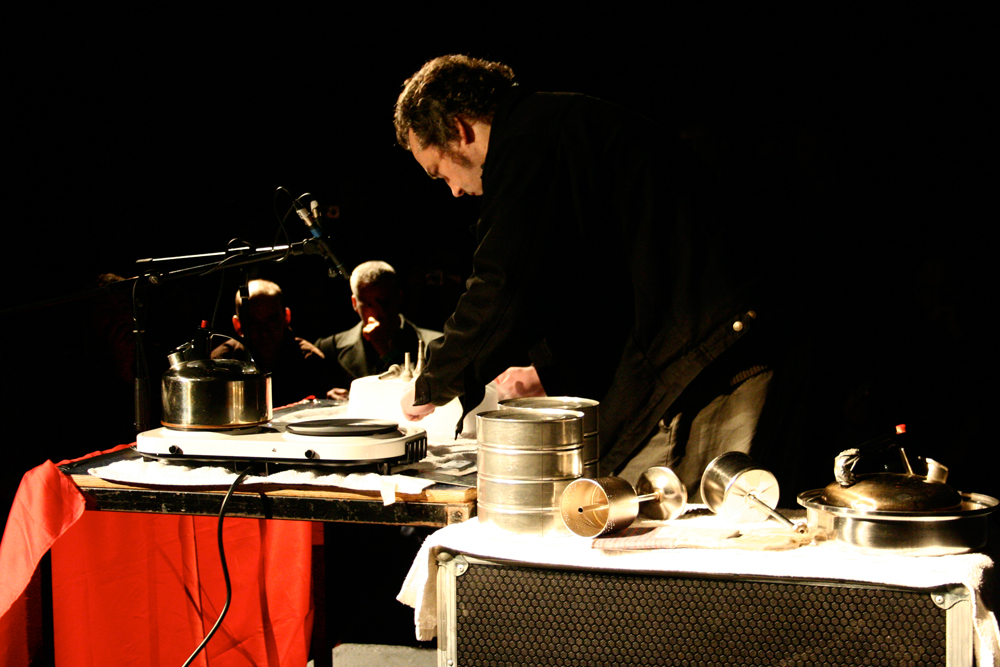
Self Cancellation – Dry Ice With Metal
Michael Colligan
Michael Colligan pressing white hot metal into dry ice, causing the metal to sing and scream.
Arika have been creating events since 2001. The Archive is space to share the documentation of our work, over 600 events from the past 20 years. Browse the archive by event, artists and collections, explore using theme pairs, or use the index for a comprehensive overview.

Michael Colligan pressing white hot metal into dry ice, causing the metal to sing and scream.
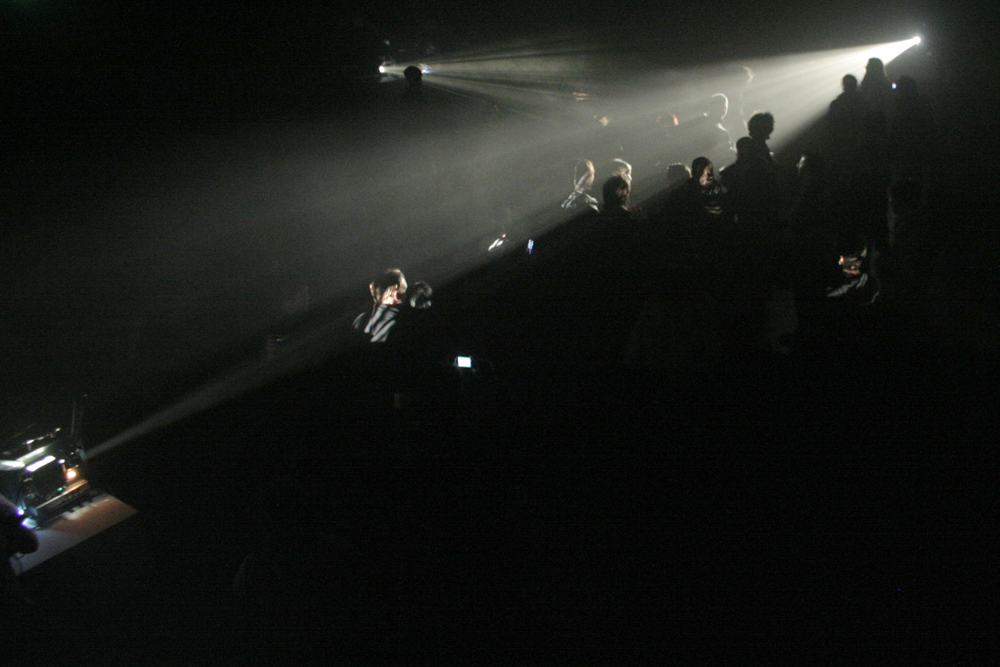
Out of a dark haze, shafts of light emerge, as the emulsion is scratched from the surface of the film. Simultaneously, out of the black silence, noise and audible scratches bloom into a bright drone.

Munehiro Narita’s Kyoaku No Intention (Worst Intentions) fired out some of the most compelling no-wave improvised rock of the 80s.

ACCESS: SOUND FILE A day-long salon accompanying KYTN focusing on sound art.

A performance for dry ice and four specially constructed steel tables, each one heated by a single candle until searingly hot.

The ongoing development of [b]reach, an abolitionist black queer retelling of Marge Piercy’s incredible feminist utopian novel Woman on the Edge of Time.
Tiny fragments of sound recombined and woven into spare and precise, violent yet beautiful pieces
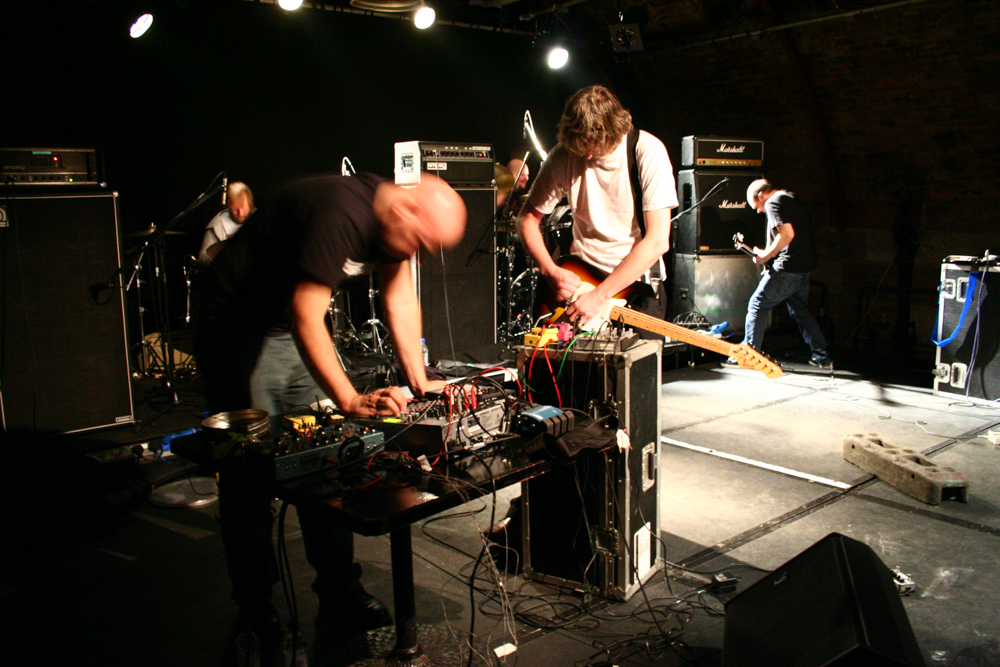
A black hole of dense heaviosity, full of slow motion riffage, tectonic pummel and massive planet destroying rock.

A poet, playwright and activist, Sanchez emerged as a seminal figure in the 1960s Black Arts Movement, writing in the name of black culture, civil rights and women’s liberation.
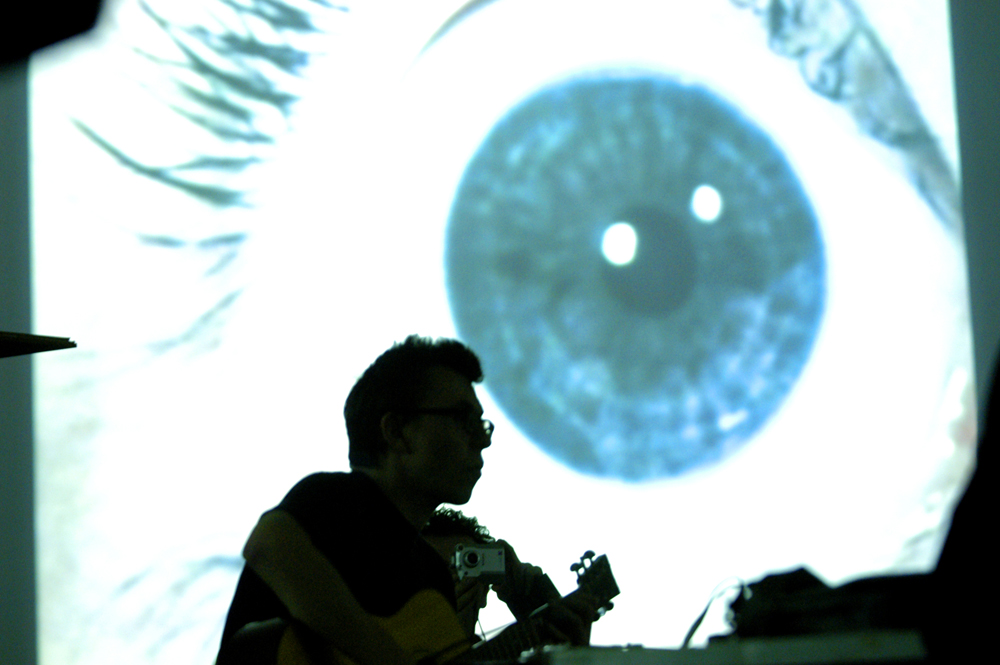
A live installation of the ‘Film Ist’: projected on 4 huge screens and an improvised soundtrack from 4 figureheads of the Austrian experimental music scene.

For day one of Ultra-red’s project, the investigation will take up protocols for listening to the sound of freedom composed and facilitated by George E. Lewis.
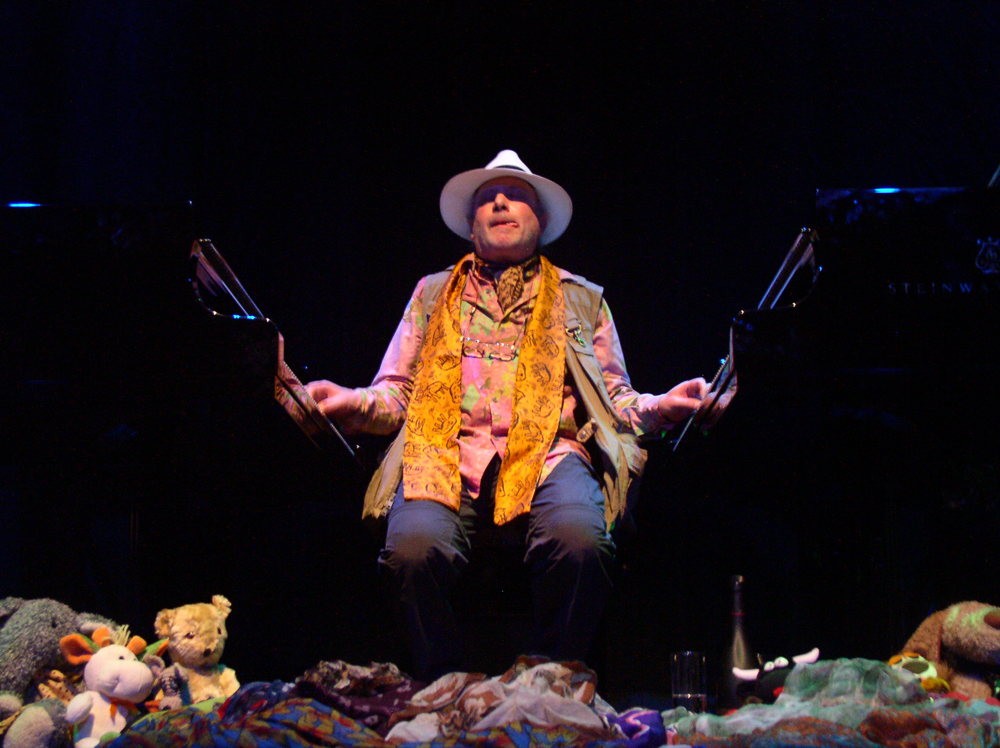
An extravagant debauch of huge pianos, plush toys, cognac and ritual.